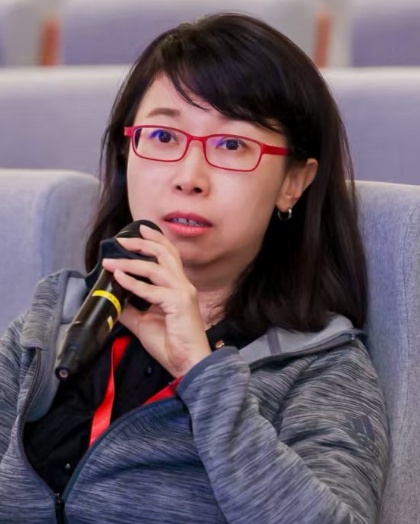
搜索网站、位置和人员

新闻与活动 活动信息
交叉科学中心系列讲座CIS Seminar | Dr. Xiaojing Yang: Synthetic Conscription: Burden-Equalizing Labor Reset for Robust Microbial Collectives
时间
2025年6月5日(周四)
2025年6月5日(周四)上午10:00-11:00
地点
西湖大学云谷校区E10-205
主持
西湖大学交叉科学中心副主任 汤雷翰讲席教授
受众
全体师生
分类
学术与研究
交叉科学中心系列讲座CIS Seminar | Dr. Xiaojing Yang: Synthetic Conscription: Burden-Equalizing Labor Reset for Robust Microbial Collectives
时间:2025年6月5日(周四)上午10:00-11:00
Time:10:00-11:00, Thursday, June 5, 2025
主持人:西湖大学交叉科学中心副主任,汤雷翰讲席教授
Host: Prof. Leihan Tang, Chair Professor & Deputy Director of the Center for Interdisciplinary Studies (CIS), Westlake University
地址:西湖大学云谷校区E10-205
Venue: E10-205, Yungu Campus, Westlake University
讲座语言:英文
Lecture Language: English

Dr. Xiaojing Yang (杨晓静)
Research Associate Professor,
Center for Quantitative Biology at Peking University
主讲人/Speaker:
Dr. Xiaojing Yang earned her Ph.D. in Condensed Matter Physics from Peking University (PKU). She then conducted postdoctoral research at the University of California, San Francisco (UCSF). Currently, she is a Research Associate Professor at the Center for Quantitative Biology in Peking University. Her research focuses on understanding the relationship between biological function and complex network topology by integrating quantitative biological experiments with mathematical modeling. Her primary research directions include: Cell fate decision-making in complex environments,Microbial growth, metabolism, and responses to environmental stimuli,,Tumor metabolism and the tumor microenvironment, and Synthetic biology.
讲座摘要/Abstract:
Division of labor within populations is a game-changer for complex functions in synthetic biology, dramatically bolstering system efficiency, stability, and robustness. However, different functions inevitably introduce different burden, resulting different fitness of different functional subgroups, which is destabilizing the system. We here propose a novel strategy that by resetting the population to a homogeneous state for labor re-division after stimulus response, the whole population shares any burden division of labor might bring to subgroups, ensuring its long-term stability. We first enumerated two-node topologies for all three key functions: 1) heterogeneous differentiation, 2) response to the input stimuli and 3) convergence to a homogeneous state. Based on the enumeration results, we constructed a gene circuit that empowers homogeneous populations to auto-divide labor, with the subpopulation ratio flexibly responding to stimuli frequency. Remarkably, after stimuli response, the population can revert to a homogeneous state for labor re-division, greatly reducing intra-species competition. We have successfully integrated this circuit into probiotic E. coli Nissle 1917, demonstrating its potential in effective IBD treatment through drug delivery.
讲座联系人/Contact:
交叉科学中心,朱子霖,邮箱:zhuzilin@westlake.edu.cn
Center for Interdisciplinary Studies (CIS), Ms. Zilin Zhu, Email: zhuzilin@westlake.edu.cn

















